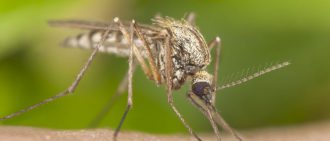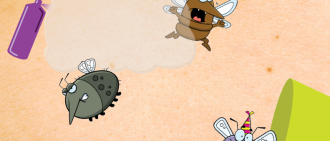The Zika virus, a mosquito-borne illness linked to several serious birth defects, has prompted the both the Centers for Disease Control and Prevention and the World Health Organization to issue several travel-related health warnings.
The virus is spread primarily through the bite of an infected Aedes mosquito, though new research has shown the condition can also be sexually transmitted.
For most, Zika is a relatively harmless condition. In a minority of cases, however, the virus has caused microcephaly and other devastating neurological defects in unborn babies.
Check back with UPMC HealthBeat to learn more about:
- Zika virus symptoms
- Zika transmission
- Birth defects associated with Zika
- Zika guidelines for pregnant women
- News and updates on the virus
-
Zika Virus: What You Need to Know
Zika virus can have serious consequences for pregnant mothers and their babies. Learn how to prevent infection and protect your baby from Zika virus today.Learn More
-
How to Stop Mosquito Bites: Tips and Tricks
Aside from dotting your skin in red, itchy spots, mosquitos are the culprits behind some of the world’s most notorious infectious diseases.Learn More
-
Zika Virus and Pregnancy: Risk Factors and Prevention
The Zika virus, a mosquito-borne illness capturing international attention, can cause severe birth defects and neurological disorders in unborn babies.Learn More
-
What Men Need to Know About the Zika Virus
Men who have contracted the Zika virus can transmit it to their sexual partners, according to the Centers for Disease Control and Prevention.Learn More
-
The Link Between Zika and Birth Defects
Learn more about the risk of birth defects from Zika — and what expecting mothers can do to protect themselves.Learn More
-
Zika in Pennsylvania? Preventing Zika at Home
The risk of contracting the virus in Pennsylvania is “highly unlikely,” according to officials at Magee-Womens Hospital of UPMC.Learn More
-
Video: Your Zika Questions Answered During Our Q&A
A Magee-Womens Hospital of UPMC doctor answers your questions about the Zika virus.Learn More
-
Is Zika Curable? Understanding the Long-Term Affects of Zika
No vaccine or cure for the Zika virus is yet available, and the virus poses the most risk to unborn babies.Learn More
-
Zika Vaccine? Learn About Pitt’s Zika Breakthrough
Two vaccines developed by researchers at the University of Pittsburgh have prevented the offspring of immunized female mice from becoming infected with the Zika virus.Learn More









